Iran's Deputy Oil Minister Says Iraq Cleared Gas Debts
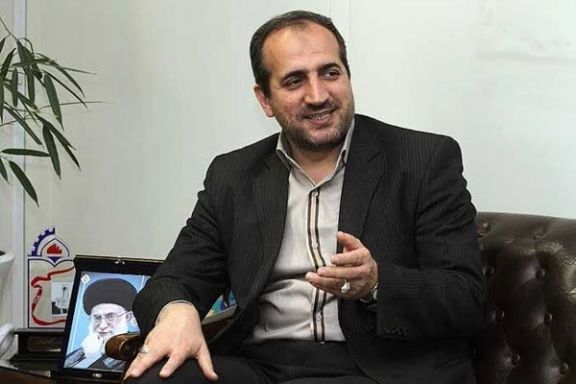
Iran's deputy oil minister says Iraq has cleared its debt for gas imports but confirmed there are problems in transferring money from the Arab state.

Iran's deputy oil minister says Iraq has cleared its debt for gas imports but confirmed there are problems in transferring money from the Arab state.
"The Iraqi Ministry of Electricity has paid all our gas claims and this debt is now zero, but sometimes there are problems in transferring money from TBI Bank of Iraq to Iran," said Majid Chegeni on Sunday.
On June 16, the spokesperson of the US State Department confirmed the reports about the release of 2.76 million dollars of frozen assets of Iran in Iraq.
The mechanism by which the money would be released remains murky, but Washington claimed it is part of a number of humanitarian transactions which have been taking place consistently over years since the previous administration.
“Iran can only access its funds held in accounts for Iraq for humanitarian and other non-sanctionable transactions,” said Matthew Miller.
Yahya Al-e Eshaq, the head of the Iran-Iraq chamber of commerce, was quoted by local media saying the Iraqi debt is between $7 to $8 billion but only $2.7b has been agreed to be released and that part of the funds has been earmarked for pilgrims and another portion has been used to purchase basic goods.
Last Monday, Iranian lawmaker Hassan Norouzi claimed that the money will be provided to the Hajj pilgrims in forms of subsidies to buy dollars at a slightly lower rate. However, he criticized the decision, saying that the money belongs to the Iranian public.

Although Iran’s official reaction to the ‘Wagner rebellion’ was cautiously supportive of Vladimir Putin, some politicians have spoken more explicitly about the event.
Ultraconservative lawmaker and former IRGC general Esmail Kowsari, who is a member of the Iranian parliament's National Security and Foreign Relations Committee is adamant that the challenge will not weaken Putin.
Kowsari said in an interview with Didban Iran website on Sunday that what happened in Russia was the work of Western infiltrators among the Wagner group.
"Certainly, the Westerners have their infiltrators among these forces. The West uses them to weaken the Russian front in the war against Ukraine, but this will inevitably harm the West's position."
Speaking on the impact of the Wagner rebellion on Russia's relations with Iran, Kowsari said: "The Russian army has orders from Putin to suppress the Wagner forces. The event is not likely to affect Tehran's ties with Moscow. We believe there is an easy solution for this problem and Russia is powerful enough to overcome the situation."
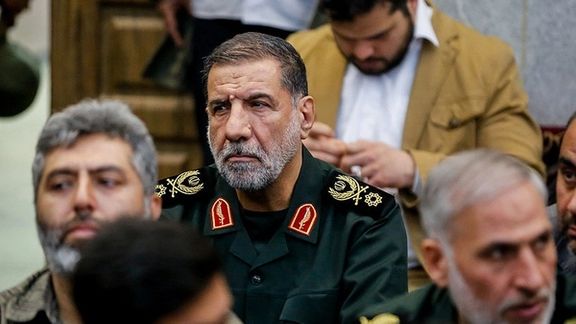
Referring to the Islamic Republic's alliance with Russia, Kowsari said that this does not mean “we are depending on Russia.” However, the two countries have commitments to each other.
In the meantime, one IRGC-linked Telegram channel, The Cyber Army of Iran, quoted Russian sources as saying on Saturday that Putin spoke over the phone with his Iranian counterpart Ebrahim Raisi but it did not elaborate on what the two spoke about. The report was not seen on any other platform and thus cannot be verified independently.
In another development, the former head of the Iranian parliament's National Security and Foreign Relations Committee, Heshmatollah Falahatpisheh, told Didban website that following Saturday's challenge by Wagner, Putin can no longer claim to be as powerful as before.
Although a conservative, Falahatpisheh is certainly not a hardliner and his foreign policy views are generally less ideological than those of politicians like Kowsari.
Falahatpisheh added that "It was naturally clear that Putin cannot have a stable future." He further remarked that "We are going back to the Yeltsin period."
He said: "Putin has learned all the lessons but one from Maciavelli.” That is where the Italian mastermind said, military objectives cannot be pursued by mercenaries, Falahatpisheh noted. He added that when Putin started to recruit criminals for the war, one could say that it was difficult for military commanders to establish a working relationship with the recruits.
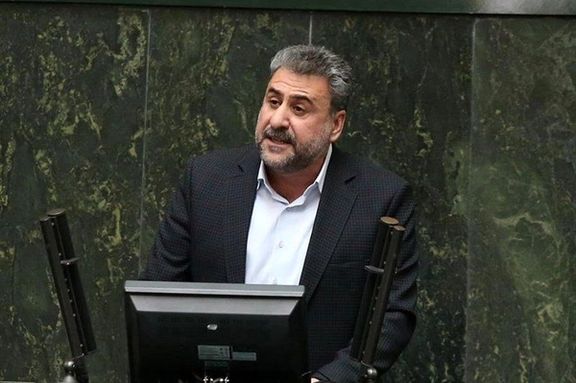
Nonetheless, Falahatpisheh refused to characterize Wagner's challenge as a coup and described it as an armed mutiny. This was the description also used by Putin in his address on Saturday.
Meanwhile, the conservative pundit advised the Iranian government not to put national interests at risk by involvement in Russia’s or Putin’s affairs. Iran can easily become a victim of Putin pursuing his own domestic interests.
Falahatpisheh pointed out that what the IRGC-linked Telegram channel did on Saturday by voicing support for Putin was “hasty” and unnecessary.
He explained that "what is happening in Russia is the outcome of Putin's ambitious strategies and was quite foreseeable. During the past months we saw that Prigozhin started to behave aggressively, probably demanding a higher compensation for his men, and then protesting that he was not receiving enough logistical support."
Referring to the historic precedence, Falahatpisheh said Putin might behave like the Bolsheviks did in 1917 and sacrifice his foreign policy for his country's domestic politics. He opined that Putin might be able to defeat or isolate Wagner forces in the short run. But in the long run, he is no longer the same powerful man.
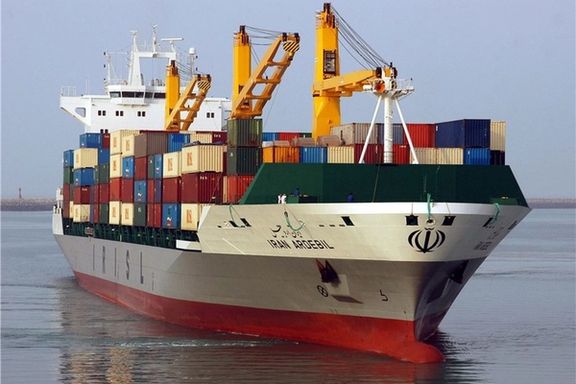
As Iranian ships face bans from international ports, the state shipping company charges the government extra money to hire foreign firms to haul cargos.
Masoud Daneshmand, member of the board of directors of the Center of Transport Institutions, told Iran's Labour News Agency (ILNA) that the main portion of the shipping company’s income is not obtained from shipment of goods, but rather from brokering cargo transportation deals between the government and foreign shipping companies.
According to him, the company -- commonly known by its business name IRISL Group – gets $50 for every ton of export and import cargoes but pays $40 to foreign firms and pockets $10 for every ton.
His comments came a few days after the IRISL Group announced a substantial increase in its income. Mohammad Modarres Khiabani, the CEO of the company, said last week that the income of the IRISL Group has hit a new record with a 20-percent rise in revenues, without mentioning its role as an intermediary.
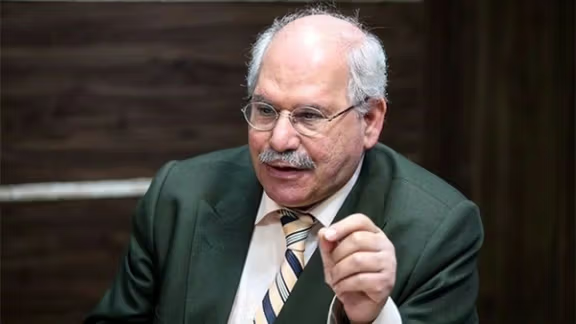
Daneshmand has not explained why the government does not directly make contracts with foreign companies and keeps the $10 difference in its coffers.
Confirming that ports all over the world must obtain permission from the US Office of Foreign Assets Control to host Iranian ships, Daneshmand noted that most of Iran's shipping vessels are sanctioned and as a result they are inactive.
"If a port does not receive permission from the OFAC, they will be subject to secondary sanctions,” he added, claiming that some countries like China, India and South Africa have obtained licenses to accept Iranian ships, but the permits are only for a few special governmental ports and they cannot berth in all the ports.
Iran has been shipping oil and oil products despite US sanctions, imposed since 2018, to China and other buyers, using clandestine methods. Third parties involved in sanctions violations are subject to US punitive measures.
According to reports by tanker tracking companies, revenue from oil exports is still the regime’s single largest source of income. Iran uses a fleet of oil tankers, known as the 'ghost fleet,' to transport its crude from the country’s ports to open seas. Then the tankers turn off their transponders so that their location would not be known, and during a couple of days the barrels of oil are loaded on other ships, which then ship them to the final buyers.
In March, the United States imposed new sanctions on Iran-linked shipping and petrochemical companies, including two shipping firms based in China.
The sanctions also targeted 20 shipping vessels linked to firms in China, Vietnam and the United Arab Emirates, the Treasury Department's website showed.
The sanctions were issued under a 2018 US executive order that restored sanctions targeting Iran's oil, banking and transportation sectors.
In 2019, OFAC issued an advisory to alert the global shipping community involved in shipping petroleum or petroleum products from Iran. “These shipments create significant sanctions risk for entities and individuals in the shipping industry, including shipping companies, vessel owners, managers, operators, insurers, and financial institutions,” read the advisory.
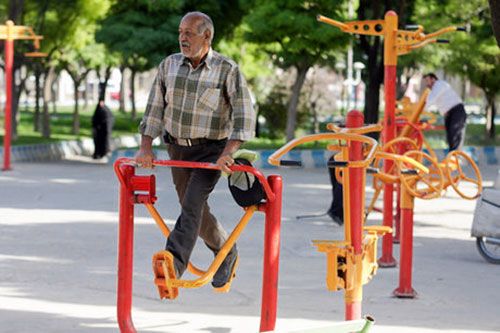
Amid warnings about the rise of obesity in Iran, the deputy minister of sports says only one in five Iranians exercise.
"Based on the latest numbers, only one fifth of Iranians exercise and that’s for half an hour twice a week," Sina Kalhor said on Sunday.
He claims that while in other countries, between 55 and 60 percent of people do more organized forms of exercise, he said most people in Iran consider walking the only way to be active.
One of the most important reasons for the lack of exercise in Iran is access to sports facilities and activities. According to Kalhor, less than 15% of the population in urban and suburban areas have access to such facilities.
He further warned about the obesity of three to five million students, claiming the move to online study left an epidemic of inactive and obese students in its wake.
In recent years, experts have repeatedly warned about the level of obesity in Iran. Shahab Shahabi, director of the obesity clinic of Rasool Akram hospital, said on Friday that about four million people in Iran need weight-loss surgery.
Citing the numbers by the Iranian Ministry of Health, Shahabi noted that about two-thirds of people suffer from obesity and in the last 40 years, the number of people who became obese in Iran has increased more than fivefold.
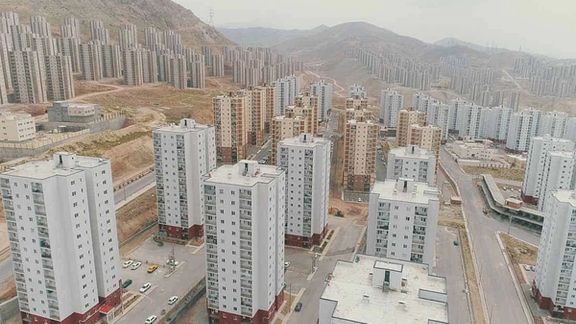
Iran's Real Estate Consultants Association says a significant number of housing developers have migrated to Turkey and Georgia, warning of the impact on the local economy.
“The more we boost the property market of foreign countries, the same amount of dollars will leave our country, and this is very dangerous for our country in the future,” Vice President of the Association, Davoud Beiginejad, said on Sunday.
The economic situation in Iran has been deteriorating for some time, with high inflation, a weak currency, and a lack of investment opportunities. Housing developers, who rely on the construction industry for their livelihood, have been hit particularly hard. With no end in sight to the economic crisis, many developers are looking for greener pastures abroad.
On the contrary, official figures in Turkey indicate a boost to the construction industry as well as rising sales of housing to foreign citizens.
Despite the strong earthquake of February this year in Turkey, which killed more than 50,000, during the first five months of this year, 16,779 residential units were sold to foreign citizens, 14 percent of whom were Iranians.
The lack of social and economic opportunities in the country has left many feeling disconnected and isolated, causing many to look for a better life elsewhere.

Iran’s regime has taken one more step to tighten its control over entertainment content in line with its policy of enforcing religious restrictions on the population.
The state broadcaster last week gained full control over content shown by privately-owned streaming services based on a decision taken by Iran's Supreme Cultural Revolution Council.
Some filmmakers and actors have warned that the full control of the state broadcaster (IRIB) over these services could end the career of actors and filmmakers who have long been banned from the state broadcaster.
IRIB is tightly controlled by the office of Iran’s authoritarian ruler Ali Khamenei and has been losing its audience with its heavy religious programming and heavily censored news. Critics say it is nothing but a propaganda tool with hefty government subsidies and no accountability.
Streaming services such as Filimo, an online video on demand (VOD) service like Netflix, have gained great popularity in Iran where there are no privately-owned television networks. These services provided an opportunity for independent and sometimes dissident filmmakers and artists to showcase their work.
The head of the state broadcaster (IRIB), hardliner Payman Jebelli, in a letter to President Ebrahim Raisi in January demanded that Filimo be blocked on the internet.
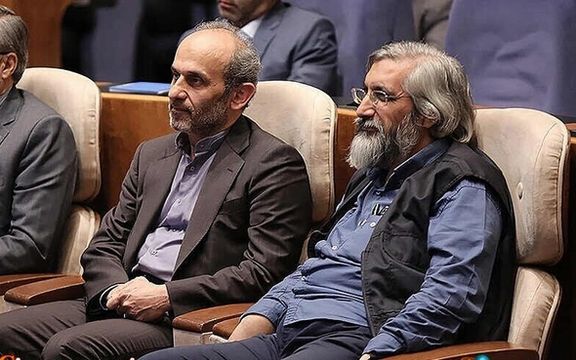
As evidence of Filimo’s liability, Jebelli cited the screening of the series Collapse (Fall). Due to the fact that one of its main actors, Hamid Farrokhnezhad, left Iran around the same time to join the opposition, backing a revolution and the return of the former crown prince, Reza Pahlavi, to Iran.
Jebelli on Wednesday said his organization was compiling regulations to supervise the work of streaming services and actors.
The increase in popularity of such services and satellite TV has caused the IRIB (the Islamic Republic of Iran Broadcasting Organization) to dramatically lose its viewership due to its political and cultural censorship. The head of the massive organization that employs around 40,000 people is appointed by Supreme Leader Ali Khamenei.
The council’s decision which was adopted in a meeting presided over by President Ebrahim Raisi on June 20 allows the IRIB to impose its own level of censorship on films or music, broadcast by these services and even prevent the films by filmmakers and actors that it does not approve of from being shown by these streaming services.
Until now, the ministry of Islamic guidance and culture was responsible for vetting the content, whether film or other programs as well as music, streamed by privately-owned streaming platforms in collaboration with SATRA (the Iranian Audio-Visual Media Regulatory Authority), which is affiliated to IRIB.
Critics argued that SATRA’s involvement was not lawful.
The council itself is the highest body for making policies and decisions in connection with cultural, educational and research activities within the framework of the general policies of the system and its decisions are legally binding. Most of the council’s members are appointed by Khamenei.
In June, the government film watchdog warned producers that their films could be banned if they hired actresses who have removed their hijab in public in support of the anti-compulsory hijab movement and anti-government protests. Several members of the entertainment industry have also suffered punishments including bank account freezes and flight bans.
Protests erupted in Iran in September 2022 after Mahsa Amini, a young woman was arrested in the street by the notorious ‘morality police’ and died in hospital after allegedly having received a fatal blow to her head at the time of her arrest.